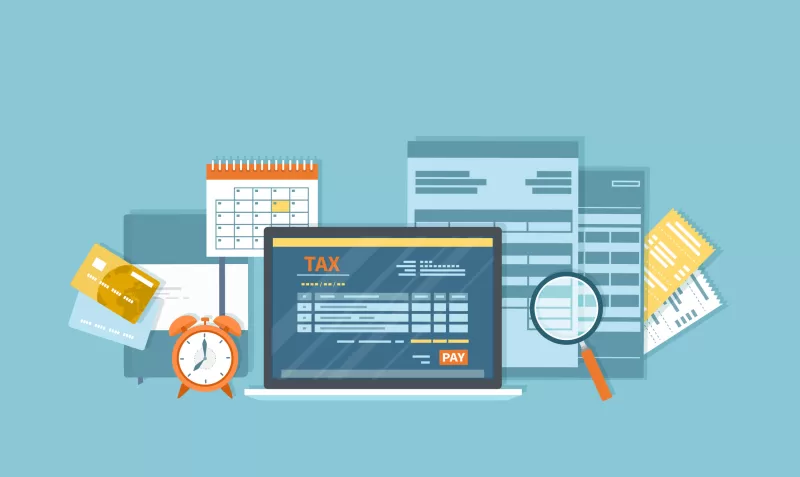Living abroad is supposed to simplify life: more freedom, lower costs, fewer constraints. Yet for many, the true shock comes not from culture or distance but from the taxman. The moment you cross a border, you step into a maze of competing rules, overlapping jurisdictions, and fine print that can cost you thousands if you don’t plan ahead—especially when it comes to expat tax.
Taxes rarely make the highlight reel of the expat dream. But understanding them is what separates those who build lasting wealth abroad from those who end up paying for their ignorance. Around the world, millions of people are discovering the same truth: going global doesn’t free you from expat tax—it multiplies the places that can claim you.
Every year, new residents find themselves double-taxed, fined for failing to file a form they never knew existed, or losing access to the treaty benefits that would have protected them. The problem isn’t malice; it’s assumption. People assume that moving means a clean slate. The truth is that the system follows you until you deliberately—and correctly—tell it not to.
Below are the seven mistakes that drain the most money from expats and globally mobile professionals. None are exotic. They are ordinary expat tax errors made by people who simply didn’t know the rules until it was too late.
1. Believing You’re Tax-Free Once You Leave
The biggest misunderstanding in the expat world is that changing your address changes your expat tax obligations. Most of the time, it doesn’t.
The United States remains one of the only countries that taxes citizens and green-card holders on worldwide income, regardless of residence. If you are American, your income follows you wherever you go. For citizens of other countries—such as the U.K., Canada, or Australia—the system hinges on residence, and residence can persist long after the moving van pulls away. Keeping a home, a dependent, or a bank account in your old country can keep you tethered to its tax net for years.
The financial fallout can be brutal. People who stop filing altogether often discover, years later, that they owe back taxes, interest, and penalties that erase any savings they thought they’d gained by moving. Even those who qualify for foreign tax credits or exclusions lose them if they never file the claim. The system assumes silence equals guilt.
Read more like this: How to Legally Pay Less Tax Abroad – Offshore Tax Planning
The antidote is simple but rarely practiced: make your exit official. File the final return, notify the tax authority, cancel voter and health registrations, and document your relocation. Until the paperwork catches up, you’re still taxable where you started.

2. Confusing Residency With Expat Tax Residency
Getting a visa or residency permit doesn’t automatically make you a tax resident—and not having one doesn’t automatically exempt you. The two systems speak different languages. Immigration law asks where you live. Tax law asks where your life is centered.
A digital nomad might spend six months in Portugal on a temporary visa yet remain tax resident in the U.S. or U.K. because their business, home, or dependents remain there. Conversely, someone who overstays a tourist visa in Spain could find themselves deemed tax resident simply for being present more than 183 days. The mismatch can leave you in a strange limbo: taxed in two countries, protected in none.
The only cure is clarity. Know which country claims you each year and why. Many governments offer “tie-breaker” tests under tax treaties, which assign residency to one side or the other. It’s bureaucratic, yes, but without it, you may be paying two treasuries for the same income.
Read more like this: Top 10 Countries with the Highest Taxes
3. Forgetting About Reporting Requirements
Even when you pay the right amount of tax, you can still be penalized for not reporting what you own. In the U.S., the FBAR and FATCA rules require anyone with more than modest sums in foreign accounts to file detailed annual disclosures. Other countries have adopted similar regimes under the OECD’s Common Reporting Standard, which allows governments to automatically share account data.
The global trend is transparency. Banks now report customer balances to their home tax authorities, who forward them abroad. Hidden accounts no longer exist. What does exist are staggering penalties for forgetting to file—often thousands of dollars per account, per year.
The only defense is discipline. Keep records of every foreign bank account, brokerage account, and investment, even those held jointly. File the forms, even if no tax is due. It’s the cheapest insurance you’ll ever buy.

4. Ignoring Exit Taxes and Timing
Leaving a country can trigger one last handshake from the tax office: the exit tax. It’s the government’s way of taxing the appreciation on assets that increased in value while you lived there, even if you haven’t sold them.
The United States applies this to certain citizens who renounce citizenship or give up long-term residency. Canada imposes a “deemed disposition” tax when you cease to be resident. France and Spain have their own variations. The common thread is timing.
Expats who sell property, cash out investments, or withdraw retirement funds just before leaving often do so under the old rules—and pay dearly. A few months’ patience could mean shifting the transaction to a new jurisdiction with lighter rates or full exemptions.
Planning an exit tax strategy isn’t glamorous, but it can mean the difference between a smooth transition and a six-figure surprise. Always ask what your current country considers a taxable “departure” and document your move date carefully.
Read more like this: How to Retire Tax-Free Abroad
5. Overlooking Tax Treaties and Credits
Expat tax treaties exist to stop governments from taxing the same income twice, yet many expats never use them. A treaty sets out which country gets to expat tax each type of income—salary, pension, dividends—and provides credits or exemptions accordingly.
Most countries require you to claim treaty protection actively. If you don’t, the tax office assumes you waived it. For Americans abroad, the Foreign Earned Income Exclusion can shield over $120,000 of earned income, and the Foreign Tax Credit can offset taxes paid elsewhere. Both are powerful, but both require an annual filing.
Other nationalities enjoy similar reliefs through bilateral treaties, but the rules vary. The U.K. treaty with Spain differs from the one with Portugal; Canada’s treaty with Mexico treats pensions differently than its treaty with France. Reading the small print may not be thrilling, but it’s cheaper than paying two governments at once.
Double taxation rarely happens because of malice. It happens because the taxpayer never claimed the right not to be taxed twice.
Read more like this: How to Avoid Double Taxation

6. Structuring Income the Wrong Way
Freelancers, consultants, and business owners often carry their domestic habits abroad: clients pay them personally, income lands in a local account, and at year’s end they discover they owe taxes in both places. The solution isn’t avoidance—it’s architecture.
A properly structured company or holding entity can separate personal and business income, allowing profits to be taxed once in a favorable jurisdiction instead of twice in two. The goal isn’t secrecy but efficiency.
Investment income adds another layer. Some countries tax global capital gains; others only tax what’s sourced locally. Where your brokerage account sits can decide where your profits are taxed. Moving investments into vehicles that match your new expat tax home—like offshore funds, life-insurance wrappers, or territorial trusts—can legally reduce exposure without breaking compliance.
The key principle: align your income with your jurisdiction. If your work, bank, and residence each exist in different countries, so do your obligations. The more aligned they are, the less friction you face.
7. Waiting Too Long to Get Help
Perhaps the most expensive mistake of all is believing you can fix it later. Expat Tax errors age poorly. Each year adds interest, penalties, and the administrative grind of back-filing.
Most domestic accountants, even talented ones, are unfamiliar with international compliance. They may not know how to interpret foreign residency rules, apply treaty provisions, or navigate disclosures. By the time an expat realizes this, the damage is already done.
The best time to hire a cross-border tax professional is before you move abroad. A single pre-departure consultation can map out where you’ll be taxed, how to document your exit, and how to structure income to avoid duplication. It’s not an expense; it’s an investment in keeping your future earnings intact.
Those who plan ahead often pay less expat tax overall than they did at home. Those who don’t often spend their first years abroad paying for lessons they could have learned in an afternoon.

Building a Smarter Expat Life
Expat Taxes are rarely the reason people move abroad, yet they’re often the factor that decides whether that move succeeds. The good news is that every one of these traps is avoidable. The bad news is that avoidance requires attention before, not after, you board the plane.
A smart expat tax structure isn’t a secret offshore account or a dubious loophole. It’s a transparent system built to fit how you live: a clear tax residency, compliant filings, income sources aligned with local rules, and a paper trail that proves it. It’s boring on the surface—but freedom almost always looks boring when it’s working.
Most people who build wealth abroad aren’t chasing escape. They’re chasing efficiency. They understand that minimizing friction—financial, bureaucratic, or emotional—is what allows freedom to last.
In the end, tax isn’t just about money. It’s about control. The difference between thriving overseas and barely surviving often comes down to who controls your narrative—you, or the systems you forgot to manage. The rules are complicated, yes. But they can be learned. And once you learn them, you realize the same structures that once trapped you can, with planning, set you free.
Read more like this: Legally Reduce Your Taxes by Moving Abroad
FAQs on Expat Tax
1. What is expat tax?
Expat tax refers to the taxes that individuals living outside their home country (expatriates) may still owe to their home government. For example, U.S. citizens must file taxes on their worldwide income, even when living abroad.
2. Do expats pay taxes?
Yes, most expats still need to file tax returns in their home country, although the amount they pay depends on tax treaties, income levels, and local tax laws in their country of residence.
3. Do American expats pay taxes?
Yes. The United States is one of the few countries that taxes its citizens on worldwide income, regardless of where they live. However, U.S. expats can often reduce or eliminate double taxation through exclusions such as the Foreign Earned Income Exclusion (FEIE) and the Foreign Tax Credit (FTC).
4. Do expats pay state taxes?
It depends on the state. Some U.S. states (like California, Virginia, and New Mexico) require residents to keep paying state taxes until they can prove they’ve established domicile elsewhere. Others (like Texas or Florida) have no state income tax.
5. Do expats pay taxes in both countries?
Sometimes, yes — but tax treaties and credits usually prevent double taxation. Many countries have tax treaties with the U.S. and other nations to ensure expats aren’t taxed twice on the same income.
Contact Author
"*" indicates required fields
Stay Ahead on Every Adventure!
Stay updated with the World News on Escape Artist. Get all the travel news, international destinations, expat living, moving abroad, Lifestyle Tips, and digital nomad opportunities. Your next journey starts here—don’t miss a moment! Subscribe Now!










